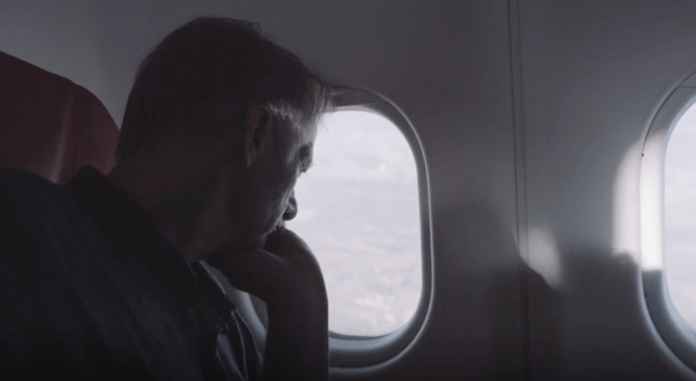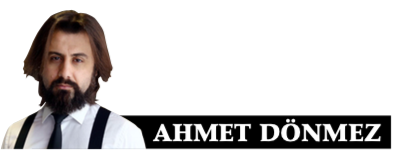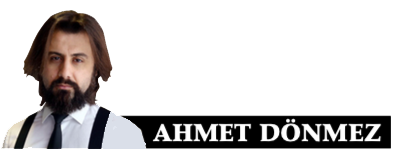I talked with the Norwegian writer, documentary film-maker and producer Jørgen Lorentzen who made a name for himself in Turkey with his documentary titled “En Gave Fra Gud (A Gift From God)“.
The documentary aired on the Swedish state television SVT with the title “Erdogan’s gudagåva (The Gift of Erdoğan’s God)“, and in Finland with the name of “Jumalan lahja Erdoganille (God’s gift to Erdoğan)“, is arguing that Erdoğan knew the coup beforehand.
In his written answers to my written questions, while Lorentzen explains why he decided to make such a documentary says that he and his Turkish wife, Nefise Özkal Lorentzen, were in Turkey on July 15th and observed what happened that night closely. Lorentzen who underlines he detected many oddities that night and that it did not look like a real coup attempt, said he had yet decided to make this documentary that night.
The Norwegian documentarian who says the question of who was behind the coup attempt as a mastermind is still unanswered although it has been over 3 years, emphasizes that what surprised him most after the sinister scene was the beginning of mass arrests without any distinction of guilty or not guilty. In this aspect, he likens the events to Hitler’s Reichstag fire of 1933.

Here are Lorentzen’s answers to the questions:
When and how did you decide to make this documentary?
We were in Turkey on July 15th, 2016 and experienced the coup attempt. We were sitting with friends and family watching television, snapping between different channels to try to understand what is happening. After a while, we all thought this coup attempt looked very strange, and already around one o’clock in the night it was almost over. Then one man in the group said that «this is not a real coup, I’ve been through several coups in Turkey and I know what a coup is». As a journalist, when someone says something like that it is too tempting not to start digging into what can be the truth of this. So, it started that night.
In the beginning, I just wanted to know more about this very strange coup attempt, but it was really hard to find people that could talk and people that knew anything about it. Almost everybody was just in deep chock or confused about the whole thing. And of course, president Erdogan’s very hard reactions and the beginning of mass arrests made it difficult to ask questions.
The decision to make a documentary was made perhaps a year later when people started to tell different stories about what happened, and of course when good colleagues of mine in Cumhuriyet were arrested and I had a chance to observe the absurdities of all these trials against so-called coup plotters. My wife, co-director Nefise Özkal Lorentzen, is a well-known film director in Norway, and I have produced her films, so at this time we started to see that perhaps there is a possibility to make a documentary about what is happening in Turkey.
How long did it take you to make this documentary?
All in all, we have to say three years, but hard concentrated work on the film is the last two years. And the last year we have been several people who have worked around the clock to try to finish it as soon as possible. But you know, we have all the time wanted to be 100 percent sure that the content of the film is accurate and reliable, so we have been through many rounds of discussions for the final editing.

How many people have you talked with?
We have talked with a lot of people all around the world, inside and outside of Turkey. These have been from all different sides of the ongoing conflicts in Turkey. In our earlier films about Islam and gender, we have talked with Salafists and reformists, so we are used to talking to people that have very different opinions. Our “program” is to raise questions and debates around controversial issues, and the coup attempt is for sure a controversial issue that has been devastating to so many humans. Therefore, it is a must for us to be able to talk to everybody, and we do.
It is important for me to show my gratitude to all the people that have helped us in the process of making the film. It would have been impossible to make the film without this help. Many of the people we have spoken to have taken risks, and they have shared their stories and knowledge in an open and trustful way. Some of these are in the film, but many more are to thank for their significant contribution.

How many countries have you been to for this documentary?
Several. You know, some of the people in the documentary are anonymous, so it is not possible for me to tell you what countries we have been to. But refugees are all over Europa and many other countries, Experts on the situation in Turkey you will find at universities all over, and the internet has no borders. What I can say is that we went to the US to interview Fetullah Gülen and Henri Barkey. They play different, but important roles in the documentary. We also asked president Erdogan for an interview and we really hoped that we would have the chance to talk with him too. We have important questions that we would like to have answered, but he didn’t reply, and we are sorry for that. It would have been a good contribution to the documentary.
What impressed you the most when you made this documentary?
A few things were very important for the way it is made. First when we started to get brand new film material from the bridge. I think I am one of the few that have watched what happened on the Bosphorus bridge from around nine in the evening of July 15th until around seven in the morning of July 16th. Then we saw with our own eyes the brutal lynching of the young cadets, film clips of the paramilitary groups that were there, and the very strange behavior of the police. Why did the police disappear, why did they open the way for these men that lynched the young cadets, and why did they just stand there and let the killing happen? They must have got orders to not intervene.
Then we met the mother and father of one of the lynched soldiers. That was emotionally very tough, and at the same time, we were so impressed by their demand for justice and wish to talk about and honor their son. These two are the real heroes in our documentary, and we bring them with us in our hearts in the making of the film. We really hope that this film can contribute in their search for justice.
Thirdly it was very important for the understanding of the chaos that night to get all the information from the Turkish navy because this shows so clearly how meaningless a lot of the things that happened that night were. The navy didn’t do anything related to the coup attempt, except sailing around, nevertheless, more than 2500 officers and soldiers have been fired or imprisoned. Why? For what?

What do you think about the coup after this documentary? What is July 15th in your aspect? How do you picture or define July 15?
There are still many stories that are not told. What happened in Marmaris where the president was hiding? What is the story behind the bombing of the parliament? What about all these weddings and meetings between Hulusi Akar and Hakan Fidan? Where is Adil Öksüz that is accused of being the brain behind the coup attempt? He just disappeared. And so on…
When we have all these stories then we know more about what July 15th is about. So far, we can conclude that the government is hiding information and that the so-called parliamentary investigation that was done after the coup attempt is a parody. So, to answer your question, for me July 15th is still unclear, and I cannot yet answer the main question: Who is behind this coup attempt. One day we will know, and we must continue the investigation until then. Justice for all the innocent people that have died and been imprisoned and tortured must be our goal.
My hope for the documentary is that more people now will start to talk. It is so important that all the people that have been purged by the Turkish regime start telling their stories. All refugees must give interviews with local media in the country they live in. Like the boy in our documentary, people must start writing their stories. And if anybody has important information please contact us.
What do you think of what happened after July 15th?
The most shocking is the mass arrests of tens of thousands of people that for sure had nothing with the coup attempt to do. It is a cleansing of the opposition in the country that is very similar to what happened after the 1980 coup and the take over by Hitler in 1933. It is likewise hugely problematic for the closure of free media in the country. This makes it almost impossible to discuss openly controversial issues and the truth is losing.

You entitled the documentary “A Gift from God”. What do you mean? What are your mainstays and reference points for that?
It refers directly to what president Erdogan said 04:20 in the morning of July 16th at the press conference at Istanbul airport when he came back to Istanbul from Marmaris. He called the coup attempt a gift from God that gave him the chance to cleanse all opposition from military, judiciary, schools, universities and the state. I think it is a little arrogant when a president of a country calls it a gift from God when hundreds of people have died, how many we do not know.
Has Turkey’s government or the embassy ever contacted you about the documentary?
We have for many years had a close relationship with the Turkish embassy in Norway, and always been open about our critical perspectives about what is happening in Turkey in the last years. Before we launched the film in Oslo, we contacted the ambassador and said that we would like to invite him and the embassy for the screening, but that we wanted to tell him first about the film. We knew that it could be difficult for him to be in a film screening when Fetullah Gülen was interviewed in the film. We were open with him and had an open talk about it. He then contacted Ankara and asked them if he could be at the screening. Instead of letting him go, they responded and said that he should contact the Norwegian Foreign Ministry and ask them to stop the film. Of course, he knew that this is not how it works in Norway, but he must do his job. And we know that being a diplomat can sometimes be difficult. We hope to invite him to an open debate about the film another time.
The film has now been shown on television in Norway, Sweden and Finland and will soon be screened in Denmark. I hope TV-stations all over Europe and the rest of the world will buy it, so everybody will have the chance to see what is going on in Turkey.





